Young Republican Climate Activists Split Over How To Get Their Voices Heard In November’s Election
If enough climate-concerned GOP youths don’t vote for Trump, they could shift the party’s environmental positions.

Young Republican climate activists participate in a panel on solutions to climate change hosted by the Georgetown College Republicans in November 2019. Credit: Students for Carbon Dividends
Four years ago, Jacob Abel cast his first presidential vote for Donald Trump. As a young conservative from Concord, North Carolina, the choice felt natural.
But this November, he plans to cast a "protest vote" for a write-in candidate or abstain from casting a ballot for president. A determining factor in his 180-degree turn? Climate change.
Climate didn't become a voting issue for Abel until months after the 2016 election. As a college freshman at Seton Hall University, he found himself increasingly frustrated by lackluster Republican responses to an issue now leading millions to march in the streets.
Abel felt that his party's future, like that of his generation, depended upon it addressing climate change with the appropriate urgency.
While his progressive counterparts helped propel a "Squad" of climate leaders into Congress, Abel advocated for market-driven climate solutions like carbon pricing as a spokesperson for republicEn, a right-leaning climate advocacy organization.
"The Green New Deal was actually a big catalyst for a lot of young Republicans coming forward and pushing for serious Republican solutions" on climate change, said Abel.
Momentum on the left stirred new conversations on the right, as young conservatives banded together in hopes of sustaining both their party and the planet. Their cries for climate action helped open older Republicans' eyes to the risk of losing young voters, and a seat at the table in future climate policymaking, if the GOP didn't change its tune.
"Over the next 10 years," Abel said, he "wants to see Republicans come together with Democrats to come to a realistic solution," along with Republicans proposing "more and more solutions" of their own, including around what Abel considers a critical "middle ground" measure to advance decarbonization—carbon pricing.
"Because we're still kind of relatively new to actually taking this topic seriously and proposing policy," said Abel of the GOP, "I think our policy response could be more robust and more detailed."
Only a decade ago, Abel's story might have been a novelty. Now, it's commonplace. From raging wildfires on the West Coast to Hurricane Sally's massive flooding in the South, climate disasters are politicizing young people across the ideological spectrum who have experienced them first hand.
Younger Republicans are much more engaged with climate change than their parents and grandparents, said Anthony Leiserowitz, director of the Yale Program on Climate Change Communication. The program's research shows young Republicans are more likely than older ones to believe in human-caused global warming and to support climate action.
Frustrated by party leadership that doesn't represent their call for urgent climate action and public discourse that discounts their views, young Republicans also seem more willing to pose their own climate solutions. They don't want to see a World War II-style mobilization; they want pragmatic proposals advancing private sector innovation.
The 2020 presidential election poses a critical test of climate conservatives' willingness to put their environmental concerns before party politics. While some young Republicans who prioritize the issue of climate change remain loyal to Trump and others turn to Biden, a growing number like Abel are not supporting either candidate.
Given Trump's thin margin of victory in 2016, young conservatives who choose not to vote for either major presidential candidate may help Biden just as much as those who vote for him over Trump, Leiserowtiz said, depending on the state they vote in. Millennials and Gen Zers will comprise 37 percent of eligible voters in November, which gives them vast electoral influence, if they vote.
If youth show up in force to oust Trump from office, their votes could provide a "powerful warning sign" for the GOP, Leiserowtiz said. It would affirm that for Republicans to win the youth vote and have a path to the White House moving forward, they must embrace climate action now.
Fractures Among Young Climate Conservatives
While young conservatives have united around the urgency of climate change, they remain divided over how to bring their concerns to the ballot box. Some embrace right-wing attacks painting Biden as a "tool of the left" and find his climate agenda "radical." Others can't find a way to justify voting for Trump, even if it means breaking with their party.
Patrick Mann from Orange County, California, voted for Trump in 2016. But today, he's leading Aggies for Joe at Texas A&M University and is co-founder of Texas Students for Biden.
Mann grew up watching wildfires ravage his home state, nearly forcing his family to evacuate in 2017. The GOP is failing to "meet the moment" for climate action, Mann said. He's hoping Biden will deliver on a promise to "restore the soul of our nation."
Taylor Walker from Pensacola, Florida, is also determined to make her voice heard on climate, including by casting her first-ever vote for president—but not for Biden.
Walker, a statewide campus coordinator for the conservative environmental advocacy group American Conservation Coalition, felt compelled to act on climate change after seeing the lasting environmental and economic damage the 2010 BP oil spill in the Gulf of Mexico wreaked on her home state. As a practicing Christian, Walker feels a "responsibility from God to steward the environment," which means fighting climate change while protecting industry.
She lauded Trump's support of Ron DeSantis' run for Florida Governor in 2018. Walker appreciated DeSantis' ambitious environmental vision and said he "passed quite a few green initiatives in the first few months of his term." The governor's environmental record since has been controversial, with DeSantis earning dismal ratings from the Sierra Club and League of Conservation Voters.
Walker also praised Trump's recent commitment to banning offshore drilling on the state's coasts, which came two years after he proposed vastly expanding oil and gas drilling in U.S. continental waters. The move "shows a good faith investment" in finding clean energy alternatives, Walker said.
Walker said she'd examine both major presidential candidates' platforms and records on climate policy up until Election Day, but she doesn't think there's much, if anything, the Biden campaign could do that would convince her to swing left. If Trump can help pivot the GOP in greener directions, she said, "then more power to him."
A False Equivalency
Young climate conservatives may fear climate denial and delayed climate action, but more than that, they fear the growing political momentum around the Green New Deal, the massive spending it entails and Biden's citing of it as a "crucial framing for meeting the climate challenges we face."
Many don't want to split with their party to support a Democrat whose allegedly bipartisan intentions they doubt. If stymieing what they consider a radical green agenda means re-electing a climate change denying president, so be it.
"I'm scared of climate change, but I'm also scared of the Green New Deal and what it means for America," said Ben Mutolo, a republicEN spokesperson and junior at SUNY College of Environmental Science and Forestry.
Mutolo felt encouraged by former Ohio Governor John Kasich's appearance at the Democratic National Convention, but he still struggles to see himself voting for Biden. Though the candidate paints himself as a centrist, Mutolo believes he's "cozying up to the ultra-progressive left."
Mutolo, who wants to see market-based climate solutions like a carbon tax, feels torn between a candidate whose climate plan relies on taking an "All-of-Government approach," and one with no efforts to reign in global warming at all.
Leiserowitz said he appreciated how a conservative might feel Biden's climate plan "doesn't jive with their limited government, free-market approach."
But he sees a strong distinction between voting for a presidential candidate with a $2 trillion climate plan that includes large renewable energy investments, which have bipartisan support, and a candidate trying "to take the country in the opposite direction, towards more fossil fuels."
Equating the two seems "hard to square rationally," said Leiserowtiz. But most people don't vote rationally. Research shows they vote based on their social and political identities, not policy positions, and are influenced by messaging from their social circles.
As someone ready to talk climate solutions, rather than debate science, Mann, the Texas A&M student, has struggled to connect with Republican peers supporting Trump. He believes that people concerned about climate change have a moral imperative to support Biden. "Voting for someone who took us out of the Paris Agreement, you're not going to get progress on climate change," said Mann. "Trump is not making America a leader on this."
Given the vast threat posed by climate change, Mann said, a vote withheld from Biden is just as problematic as a vote for Trump.
Mann knows he can't change people's minds, but that won't stop him from trying. "All I can do is plant ideas in their mind of why it's important" to elect Biden now and put climate leaders into office beyond this November, he said. "Hopefully, those grow."
While some young climate conservatives like Mann are engaging their peers in discussions about the presidential election, others like Walker are more concerned with raising awareness of market-driven climate solutions or getting out the vote for local and Congressional races.
Whatever their course of action, the chance to help shape climate policy for a critical next four to eight years isn't lost on any of these young climate conservatives. How they cast their ballots, and in what numbers, may solidify for the right a reality already made clear on the left—political survival now goes hand in hand with efforts to stabilize the climate and invest in the futures of today's youth and those of generations to come.
-
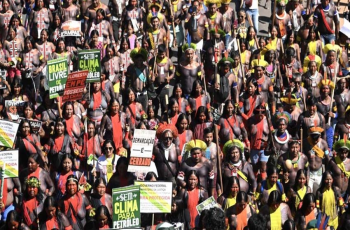
Indigenous people march in Brazil to demand land demarcation
2024-04-24 -
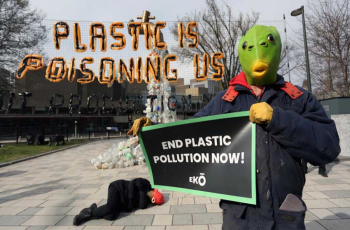
Talks on global plastic treaty begin in Canada
2024-04-24 -
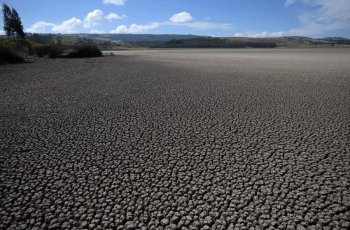
Colombian court recognizes environmental refugees
2024-04-24 -

Asia hit hardest by climate and weather disasters last year, says UN
2024-04-23 -
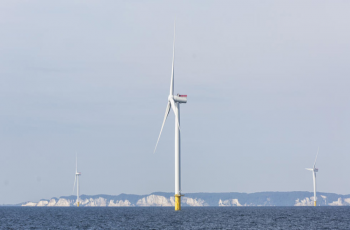
Denmark launches its biggest offshore wind farm tender
2024-04-22 -

Nobel laureate urges Iranians to protest 'war against women'
2024-04-22 -

'Human-induced' climate change behind deadly Sahel heatwave: study
2024-04-21 -

Moldovan youth is more than ready to join the EU
2024-04-18 -

UN says solutions exist to rapidly ease debt burden of poor nations
2024-04-18 -
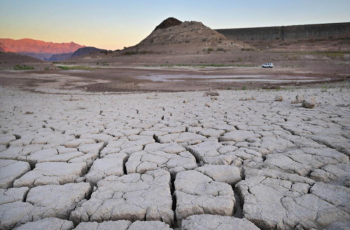
Climate impacts set to cut 2050 global GDP by nearly a fifth
2024-04-18
